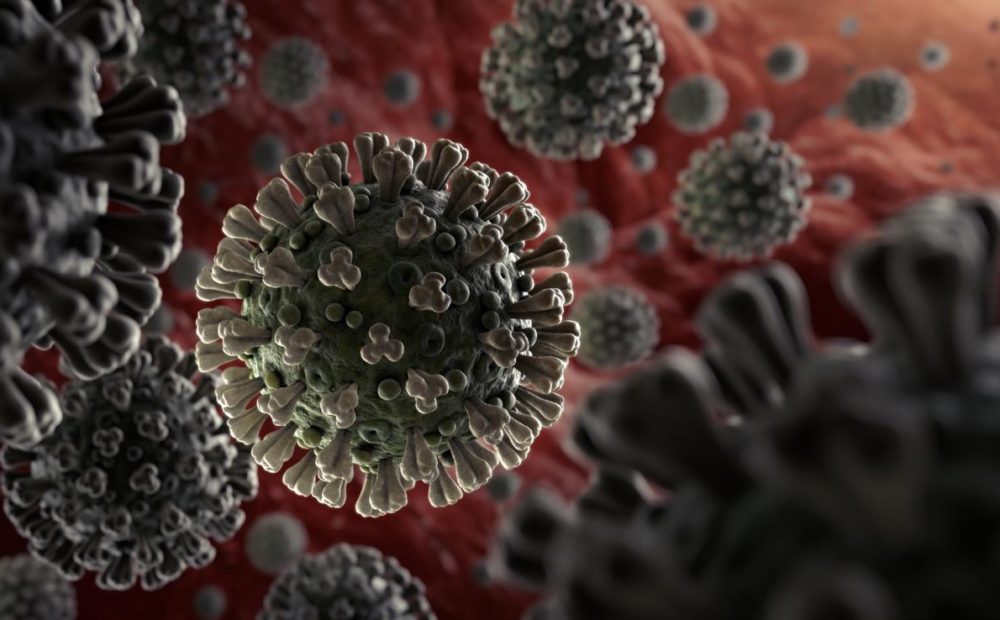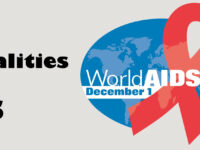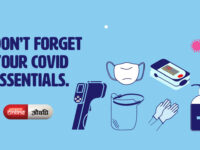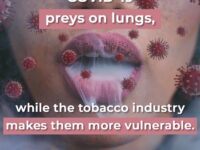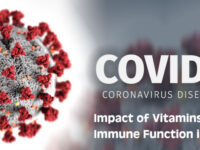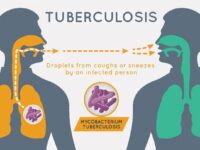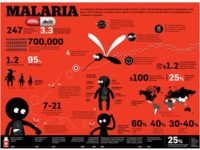What is a novel coronavirus?
A novel coronavirus (nCoV) is a new strain that has not been previously identified in humans. It is an infectious disease caused by a newly discovered coronavirus.
Coronaviruses are a large family of viruses that are known to cause illness ranging from the common cold to more severe diseases such as Middle East Respiratory Syndrome (MERS) and Severe Acute Respiratory Syndrome (SARS).
What is the difference between the coronavirus and the influenza virus?
The speed of transmission is an important point of difference between the two viruses. Influenza has a shorter median incubation period (the time from infection to appearance of symptoms) and a shorter serial interval (the time between successive cases) than COVID-19 virus. The serial interval for COVID-19 virus is estimated to be 5-6 days, while for influenza virus, the serial interval is 3 days. This means that influenza can spread faster than COVID-19.
Further, transmission in the first 3-5 days of illness, or potentially pre-symptomatic transmission –transmission of the virus before the appearance of symptoms – is a major driver of transmission for influenza. In contrast, while we are learning that there are people who can shed COVID-19 virus 24-48 hours prior to symptom onset, at present, this does not appear to be a major driver of transmission.
How does the coronavirus disease spread ?
People can catch COVID-19 from others who have the virus. The disease can spread from person to person through small droplets from the nose or mouth which are spread when a person with COVID-19 coughs or exhales. These droplets land on objects and surfaces around the person. Other people then catch COVID-19 by touching these objects or surfaces, then touching their eyes, nose or mouth. People can also catch COVID-19 if they breathe in droplets from a person with COVID-19 who coughs out or exhales droplets. This is why it is important to stay more than 1 meter (3 feet) away from a person who is sick.
Can patients with suspected and confirmed nCoV infection be cohorted in the same room ?
Ideally, suspected and confirmed 2019-nCoV acure respiratory disease patients should be isolated in single rooms. However, when this is not feasible (e.g., limited number of single rooms), cohorting is an acceptable option. Some patients with suspected 2019-nCoV infection may actually have other respiratory illnesses, hence they must be cohorted separately from patients with confirmed 2019-nCoV infection. A minimum of 1-meter distance between beds should be maintained at all times
What precautions should I take while travelling during the coronavirus disease outbreak ?
Recommendations for international travellers. Perform hand hygiene frequently, particularly after contact with respiratory secretions. Hand hygiene includes either cleaning hands with soap and water or with an alcohol-based hand rub. Alcohol-based hand rubs are preferred if hands are not visibly soiled; wash hands with soap and water when they are visibly soiled; Cover your nose and mouth with a flexed elbow or paper tissue when coughing or sneezing and disposing immediately of the tissue and performing hand hygiene; Refrain from touching mouth and nose; A medical mask is not required if exhibiting no symptoms, as there is no evidence that wearing a mask – of any type – protects non-sick persons. However, in some cultures, masks may be commonly worn. If masks are to be worn, it is critical to follow best practices on how to wear, remove and dispose of them and on hand hygiene after removal
As for any travel, travellers are also advised to follow proper food hygiene practices, including the five keys for food safety, as well as recommendations to reduce the risk of transmission of emerging pathogens from animals to human in live markets.
What should I do in the case of a coronavirus outbreak ?
Get the facts from reliable sources to help you accurately determine your risks so that you can take reasonable precautions. Seek guidance from WHO, your healthcare provider, your national public health authority or your employer for accurate information on COVID-19 and whether COVID-19 is circulating where you live. It is important to be informed of the situation and take appropriate measures to protect yourself and your family.
You need to take the risk of infection seriously. Follow the advice of WHO and guidance issued by national and local health authorities. For most people, COVID-19 infection will cause mild illness however, it can make some people very ill and, in some people, it can be fatal. Older people, and those with pre-existing medical conditions (such as obesity, cardiovascular disease, chronic respiratory disease or diabetes) are at risk for severe disease.
What happens when you get the coronavirus disease ?
People with COVID-19 generally develop signs and symptoms, including mild respiratory symptoms and fever, on an average of 5-6 days after infection (mean incubation period 5-6 days, range 1-14 days). Most people infected with COVID-19 virus have mild disease and recover
Can you contract the coronavirus disease by touching a surface ?
People could catch COVID-19 by touching contaminated surfaces or objects and then touching their eyes, nose or mouth.
Are smokers more vulnerable to the coronavirus disease ?
Smokers are likely to be more vulnerable to COVID-19 as the act of smoking means that fingers (and possibly contaminated cigarettes) are in contact with lips which increases the possibility of transmission of virus from hand to mouth. Smokers may also already have lung disease or reduced lung capacity which would greatly increase risk of serious illness. Smoking products such as water pipes often involve the sharing of mouth pieces and hoses, which could facilitate the transmission of COVID-19 in communal and social settings.
What is the recovery time for the coronavirus disease ?
Using available preliminary data, the median time from onset to clinical recovery for mild cases is approximately 2 weeks and is 3-6 weeks for patients with severe or critical disease.
Is the coronavirus disease the same as SARS ?
No. The virus that causes COVID-19 and the one that caused the outbreak of Severe Acute Respiratory Syndrome (SARS) in 2003 are related to each other genetically, but the diseases they cause are quite different.
Can the coronavirus disease spread through food ?
Current evidence on other coronavirus strains shows that while coronaviruses appear to be stable at low and freezing temperatures for a certain period, food hygiene and good food safety practices can prevent their transmission through food.
Is headache a symptom of the coronavirus disease ?
The virus can cause a range of symptoms, from ranging from mild illness to pneumonia. Symptoms of the disease are fever, cough, sore throat and headaches.
Is diarrhea a symptom of the coronavirus disease ?
The most common symptoms of COVID-19 are fever, tiredness, and dry cough. Some patients may have aches and pains, nasal congestion, runny nose, sore throat or diarrhea. These symptoms are usually mild and begin gradually. Some people become infected but don’t develop any symptoms and don’t feel unwell.
Can antibiotics treat the coronavirus disease ?
No, antibiotics do not work against viruses. The 2019-nCOV is a virus and, therefore, antibiotics should not be used as a means of prevention or treatment.
Who is at risk for coronavirus ?
The virus that causes COVID-19 infects people of all ages. However, evidence to date suggests that two groups of people are at a higher risk of getting severe COVID-19 disease. These are older people (that is people over 60 years old); and those with underlying medical conditions (such as cardiovascular disease, diabetes, chronic respiratory disease, and cancer). The risk of severe disease gradually increases with age starting from around 40 years. It’s important that adults in this age range protect themselves and in turn protect others that may be more vulnerable.
WHO has issued advice for these two groups and for community support to ensure that they are protected from COVID-19 without being isolated, stigmatized, left in a position of increased vulnerability or unable to access basic provisions and social care.
How long does the coronavirus last on surfaces ?
It is not certain how long the virus that causes COVID-19 survives on surfaces, but it seems to behave like other coronaviruses. Studies suggest that coronaviruses (including preliminary information on the COVID-19 virus) may persist on surfaces for a few hours or up to several days.
Can babies get the coronavirus disease ?
We know it is possible for people of any age to be infected with the virus, but so far there are relatively few cases of COVID-19 reported among children.
Can coronavirus spread through mosquito bite ?
To date there has been no information nor evidence to suggest that the new coronavirus could be transmitted by mosquitoes. The new coronavirus is a respiratory virus which spreads primarily through droplets generated when an infected person coughs or sneezes, or through droplets of saliva or discharge from the nose. To protect yourself, clean your hands frequently with an alcohol-based hand rub or wash them with soap and water. Also, avoid close contact with anyone who is coughing and sneezing.
Are masks effective against the coronavirus disease ?
If you are healthy, you only need to wear a mask if you are taking care of a person with suspected 2019-nCoV infection. Wear a mask if you are coughing or sneezing. Masks are effective only when used in combination with frequent hand-cleaning with alcohol-based hand rub or soap and water. If you wear a mask, then you must know how to use it and dispose of it properly.
What is the incubation period of the coronavirus disease ?
The “incubation period” means the time between catching the virus and beginning to have symptoms of the disease. Most estimates of the incubation period for COVID-19 range from 1-14 days, most commonly around five days. These estimates will be updated as more data become available.
Can cold weather and snow prevent the coronavirus disease ?
Cold weather and snow CANNOT kill the new coronavirus.
There is no reason to believe that cold weather can kill the new coronavirus or other diseases.
Can the coronavirus disease be transmitted in hot or humid climates ?
From the evidence so far, the COVID-19 virus can be transmitted in ALL AREAS, including areas with hot and humid weather. Regardless of climate, adopt protective measures if you live in, or travel to an area reporting COVID-19. The best way to protect yourself against COVID-19 is by frequently cleaning your hands. By doing this you eliminate viruses that may be on your hands and avoid infection that could occur by then touching your eyes, mouth, and nose.
Does chlorine kill Coronavirus ?
Weak chlorine solution (0.05%) can be used to disinfect hands when there is no alcohol based hand rub (ABHR) or soap. However, weak chlorine solutions are not recommended when alcohol based hand rub or soap and water are available as there is a higher risk of hand irritation and ill health effects from making and diluting chlorine solutions. Further chlorine solutions must be made daily, stored in a cool dry place with a lid away from sunlight, otherwise they have the potential to lose potency and efficacy at disinfection. Chlorine is effective as a decontamination (at 0.5%) for environmental cleaning when preceded by cleaning with soap and water.
What is the treatment for the coronavirus disease ?
No pharmaceutical products have yet been shown to be safe and effective for the treatment of COVID-19. However, a number of medicines have been suggested as potential investigational therapies, many of which are now being or will soon be studied in clinical trials, including the SOLIDARITY trial co-sponsored by WHO and participating countries.
In many countries, doctors are giving COVID-19 patients medicines that have not been approved for this disease. The use of licensed medicines for indications that have not been approved by a national medicines regulatory authority is considered “off-label” use. The prescription of medicines for off-label use by doctors may be subject to national laws and regulations.
Is there a vaccine for the coronavirus disease ?
When a disease is new, there is no vaccine until one is developed. It can take a number of years for a new vaccine to be developed.
How to dispose of waste from coronavirus patients ?
No. Waste produced during the health care or home care of patients with suspected or confirmed 2019-nCoV infection should be disposed of as infectious waste. For more information on disposing of infectious waste, please click here. Or visit CDC website here
How to disinfect houses of COVID-19 patients ?
Environmental cleaning in healthcare facilities or homes housing patients with suspected or confirmed 2019-nCoV infection should use disinfectants that are active against enveloped viruses, such as 2019-nCoV and other coronaviruses. There are many disinfectants, including commonly used hospital disinfectants, that are active against enveloped viruses. Currently WHO recommendations include the use of:
- 70% Ethyl alcohol to disinfect reusable dedicated equipment (e.g., thermometers) between uses
- Sodium hypochlorite at 0.5% (equivalent 5000ppm) for disinfection of frequently touched surfaces in homes or healthcare facilities
Source : https://www.who.int/

